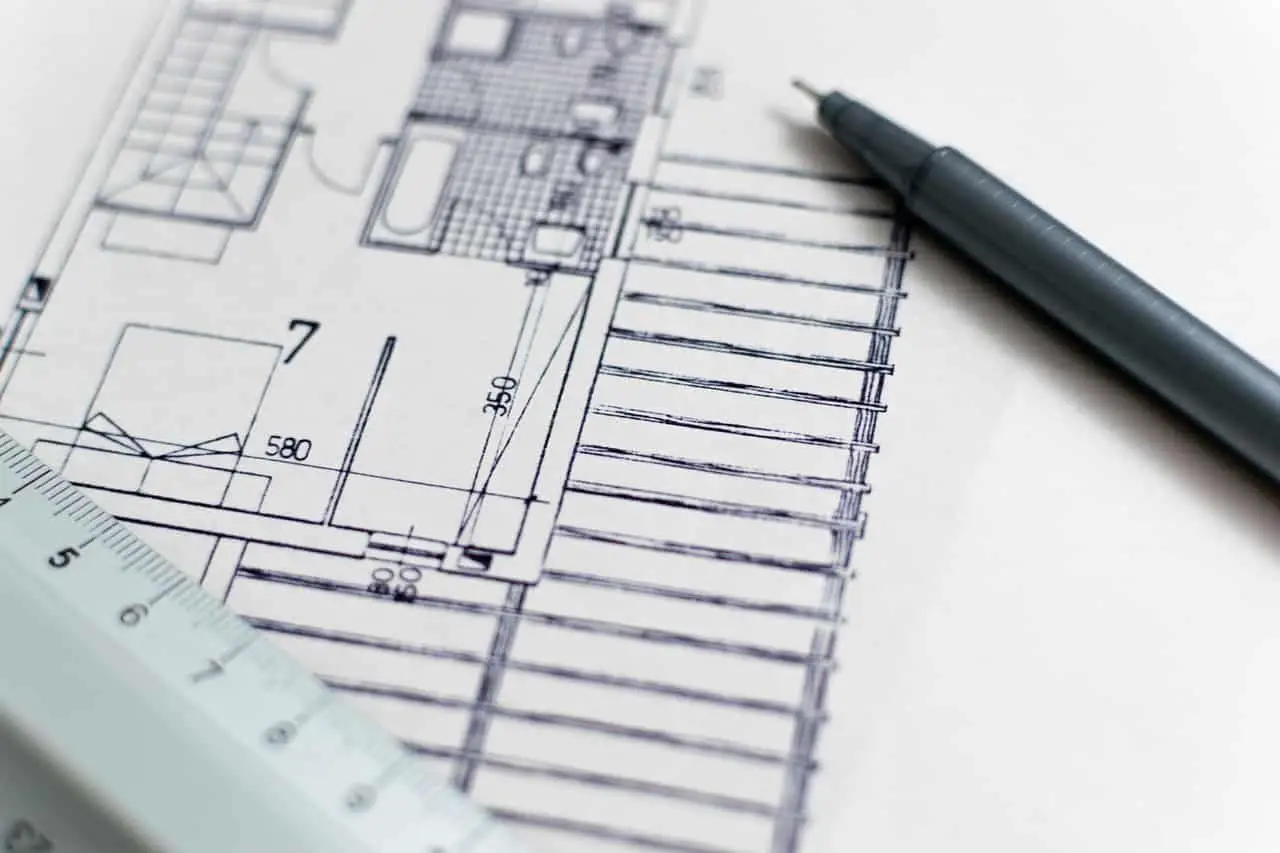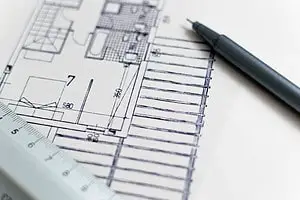Architects are responsible for designing and overseeing the construction of buildings that meet the needs of clients while adhering to safety and regulatory requirements. To become a successful architect, one must possess a diverse set of competencies that are acquired through rigorous education and training. Architect school provides students with the necessary knowledge and skills to excel in this field.
This article will explore the essential competencies that students can gain from architect school to succeed in their careers. These competencies include:
- Attention to detail
- Critical thinking and problem-solving
- Effective communication
- Technical proficiency
- Design and aesthetics
- Time management and organization
- Leadership and teamwork
- Business and finance
By mastering these skills, architects can create innovative and functional designs that meet the needs of clients and contribute to the built environment.
Key Takeaways
- Essential competencies for architects include attention to detail, critical thinking, communication, technical proficiency, design, time management, leadership, and business/finance.
- Architects must identify and understand complex issues, evaluate options, and develop creative and effective solutions.
- Effective communication is vital for collaboration with clients, contractors, and other professionals.
- Mastery of technical skills, such as drafting and computer-aided design, is necessary for success in architecture.
Attention to Detail
An essential competency for success in architect school is the ability to maintain a keen attention to detail, which is necessary for accurately interpreting complex blueprints and translating them into functional and aesthetically pleasing designs. Architect students are required to have a sharp eye for detail, as even the slightest miscalculation or oversight can lead to costly mistakes and compromised safety.
For instance, a misplaced measurement in a building design can result in structural instability, which can lead to disastrous consequences. As such, architect students must be meticulous in their work and pay close attention to every detail to ensure that their designs meet the highest standards of safety and functionality.
To develop this skill, architect students are trained to pay close attention to every detail in their designs, from the placement of windows to the specific materials used in the construction process. They are taught to scrutinize every aspect of a design, no matter how small, to ensure that it meets the required standards.
This attention to detail also extends to the communication of their designs to clients and stakeholders. Architect students must be able to convey their ideas in a clear and concise manner, using detailed plans and visual aids to ensure that everyone involved in the project understands the design requirements and specifications.
Ultimately, the ability to maintain a keen attention to detail is an essential skill for success in architect school, as it ensures that students can produce high-quality designs that meet both functional and aesthetic standards.
Critical Thinking and Problem-Solving
The ability to analyze complex problems and generate innovative solutions is a crucial aspect of the education and training received in the field of architecture. Critical thinking and problem-solving skills are honed throughout the entire curriculum and are essential for success in the profession.
Architects must be able to identify and understand complex issues, evaluate various options for solving problems, and develop creative and effective solutions that meet the needs of clients, users, and the environment. Architects must analyze a wide range of factors, including spatial relationships, building codes, environmental concerns, and budget constraints, among others.
They must also be able to integrate various disciplines, such as engineering, construction, and interior design, into their work. Critical thinking and problem-solving skills enable architects to approach projects from a holistic perspective and develop integrated solutions that take into account all relevant factors.
Ultimately, these skills allow architects to create spaces that are functional, efficient, and aesthetically pleasing, while also meeting the needs and expectations of clients and users.
Effective Communication
Effective communication is a vital skill that architects need to develop to successfully collaborate with clients, communicate with contractors, and work with other professionals.
Architects must be able to articulate their ideas and vision clearly to clients and contractors, while also listening and responding to their feedback.
Additionally, architects must collaborate with other professionals, such as engineers and builders, to ensure that all aspects of a project are integrated and executed seamlessly.
Collaborating with Clients
Collaborating with clients throughout the design process is a crucial aspect of an architect’s education, as it involves empathizing with their needs and translating their ideas into a tangible structure that meets their expectations.
Architects must be able to work closely with clients to understand their requirements, preferences, and limitations. This involves a high level of communication skills, including active listening, effective questioning, and clear articulation of ideas. Architects must also be able to negotiate with clients when conflicting viewpoints arise and provide feasible solutions that satisfy both parties.
In addition, architects must be able to manage client expectations and provide regular updates on the project’s progress. This involves setting realistic timelines and budgets, and ensuring that the final design meets the client’s specifications. Architects must also be able to handle client feedback, both positive and negative, and use it to refine the design.
Overall, effective collaboration with clients is a key competency for architects, as it helps to ensure successful project outcomes and client satisfaction.
Communicating with Contractors
Communication with contractors is a critical aspect of a successful architectural project, as it involves ensuring that the design is executed according to specifications and within budget constraints. Architects must be able to communicate effectively with contractors to ensure that the project is completed on time, within budget, and to the satisfaction of the client. Architects should have a clear understanding of the project scope and budget, as well as the contractor’s capabilities and limitations. Communication should be open and honest, with both parties working together to achieve the project goals.
Effective communication with contractors can be achieved through various means, including written and verbal communication, meetings, and site visits. Architects should use clear and concise language and be able to explain technical terms and concepts in a way that is easily understood by contractors. Additionally, architects should be able to listen actively to the contractor’s concerns and ideas, and be willing to make adjustments to the design if necessary. By maintaining open lines of communication with contractors, architects can ensure that the project is completed successfully and to the satisfaction of all stakeholders.
| Skills for Effective Communication with Contractors | Importance for Architectural Success |
|---|---|
| Active Listening | Architects must be able to actively listen to the concerns and ideas of contractors to ensure that the project is executed successfully. |
| Clear and Concise Language | Clear and concise language is essential for effective communication, as it ensures that all parties understand the project scope and requirements. |
| Technical Knowledge | Architects must have a strong understanding of technical terms and concepts to communicate effectively with contractors and ensure that the project is executed according to specifications. |
Working with Other Professionals
Working with other professionals in the field of architecture requires a thorough understanding of their roles and responsibilities, as well as the ability to integrate their expertise into the design process. Architects must work alongside engineers, contractors, and project managers to ensure that the project is completed on time and within budget. Effective communication, collaboration, and problem-solving skills are essential in working with these professionals.
Architects must also work closely with other design professionals, such as interior designers and landscape architects, to ensure that the overall vision of the project is cohesive and functional. Interior designers are responsible for creating functional and aesthetically pleasing spaces, while landscape architects focus on the design of outdoor spaces. Architects must be able to work with these professionals to ensure that the design of the building, both inside and out, meets the needs of the client and the occupants.
By working collaboratively with other professionals, architects can create successful projects that meet the needs of all stakeholders.
Technical Proficiency
Mastery of technical skills is a key component of success in architecture, and architect school provides students with a comprehensive education in areas such as drafting, computer-aided design, and building codes. Technical proficiency is essential for architects to be able to create effective designs that meet the needs of their clients, as well as to ensure that their designs comply with local building codes and regulations.
Through coursework and hands-on experience, architect students learn how to create detailed drawings and models using computer software, as well as how to analyze and interpret building codes to ensure that their designs meet safety and performance standards. By gaining technical proficiency in these areas, architects are able to create designs that are both aesthetically pleasing and functional.
In addition to technical skills, architect school also provides students with training in other important areas such as project management, communication, and teamwork. These skills are essential for architects to be able to effectively work with other professionals such as engineers, contractors, and clients.
Through group projects and internships, students learn how to collaborate with others to achieve common goals, as well as how to communicate effectively with clients and other stakeholders. By gaining these essential competencies, architect students are well-prepared to enter the workforce and succeed in their careers as architects.
Design and Aesthetics
The design and aesthetics of a building are crucial in creating a visually appealing and functional structure that meets the needs of the client and enhances the surrounding environment.
Architect school provides students with the necessary skills to understand the principles of design, including color theory, composition, and proportion. Students learn how to create floor plans that optimize natural light, ventilation, and thermal comfort, as well as how to choose materials that are durable, sustainable, and aesthetically pleasing.
In addition to technical skills, architect school also emphasizes the importance of creativity and innovation in design. Students are encouraged to think outside the box and challenge conventional ideas to create unique and innovative buildings. They learn how to use computer-aided design (CAD) software to create 3D models and visualizations that allow them to explore different design concepts and communicate their ideas effectively to clients and stakeholders.
Overall, the design and aesthetics component of architect school equips students with the skills and knowledge necessary to create beautiful, functional, and innovative structures that enhance the built environment.
Time Management and Organization
Time management and organization are essential competencies for success in architecture.
Meeting deadlines, managing multiple projects, and prioritizing tasks are crucial skills that architects must possess to ensure project completion on time and within budget.
Architects must be able to balance competing demands and allocate their time effectively to achieve optimal results.
Meeting Deadlines
Meeting deadlines is a crucial skill that can be honed through rigorous training in architectural school, providing students with the ability to deliver high-quality work within a specified period. This skill is essential in the architecture industry, where projects often have strict deadlines and timelines. Architects must be able to manage their time effectively and prioritize their workload to meet these deadlines.
To achieve this, architectural school teaches students to develop a sense of urgency and discipline in their work. They learn to plan their work in advance and set achievable goals for each day, allowing them to stay on track and complete their tasks on time. Additionally, students are taught to anticipate potential delays and obstacles that may arise during a project and develop contingency plans to mitigate their impact.
These skills are crucial in the architecture industry, where deadlines can often make or break a project’s success. By mastering these skills, architectural students can gain a competitive edge in the industry and achieve success in their careers.
Managing Multiple Projects
To effectively manage multiple projects, architects must possess a keen sense of organization and strategic planning in order to allocate resources and prioritize tasks. This involves setting realistic goals, estimating timelines, and breaking down tasks into manageable steps.
Architects must also be adept at delegating responsibilities and communicating effectively with team members.
Additionally, architects must be skilled in multitasking and adapting to changes in project requirements. This entails having the ability to pivot quickly between tasks, manage time efficiently, and remain flexible in the face of unexpected challenges.
Architects must also be able to balance competing priorities and make decisions based on the needs of each project. By developing these skills, architects can successfully manage multiple projects and ensure the timely delivery of high-quality work.
Prioritizing Tasks
Effective task prioritization is a crucial aspect of managing multiple projects as it ensures that resources are allocated efficiently and deadlines are met. Architects are often tasked with handling several projects at once, which makes it essential for them to master the art of prioritizing tasks. This skill involves identifying the most significant tasks, breaking them down into smaller, manageable parts, and allocating resources accordingly.
One way to prioritize tasks is by creating a table that outlines the tasks, their deadlines, and their level of importance. This table helps architects to stay organized and on top of their workload, ensuring that they do not overlook essential tasks. When prioritizing tasks, it is essential to factor in the urgency of each task, the resources required to complete it, and the impact it will have on the overall outcome of the project. By doing this, architects can ensure that they allocate resources efficiently and that they meet their deadlines while delivering high-quality work.
| Task | Deadline | Importance |
|---|---|---|
| Design Concept | 2 weeks | High |
| Site Visit | 1 week | Medium |
| Client Meeting | 3 days | High |
| Material Selection | 4 days | Medium |
| Budget Analysis | 1 week | High |
Table 1: Example of a task prioritization table for an architect. This table outlines the tasks, their deadlines, and their level of importance. Architects can use this table to allocate resources efficiently and ensure that they meet their deadlines while delivering high-quality work.
Leadership and Teamwork
Collaboration is an integral component of architectural design, and therefore leadership and teamwork skills are crucial for success in the field. Architects must work closely with clients, contractors, engineers, and other professionals to ensure that projects are completed on time, within budget, and to the satisfaction of all stakeholders.
Effective communication, conflict resolution, and delegation are essential to coordinate the efforts of a diverse group of individuals and achieve common goals.
Leadership skills are also necessary for architects to effectively manage projects and teams. This involves setting clear expectations, providing guidance and support, and empowering team members to take ownership of their work.
Architects must also be able to inspire and motivate others, foster a positive team culture, and lead by example. Developing strong leadership and teamwork skills is essential for architects to build successful careers, deliver exceptional projects, and contribute to the advancement of the profession.
Business and Finance
The knowledge of business and finance principles is a key aspect of an architect’s professional development and plays a crucial role in the success of their projects. Architects are responsible for designing buildings that meet the needs and desires of their clients while staying within budget and complying with various regulations. Without a solid understanding of business and finance, architects may struggle to manage costs, secure funding, and negotiate contracts effectively.
By studying these principles in architecture school, students can gain the skills necessary to navigate the financial aspects of their profession.
Architects must also have the ability to communicate effectively with clients, contractors, and other stakeholders. This requires an understanding of financial terminology and the ability to present financial information clearly and concisely. Architects must be able to create accurate budget estimates, manage project finances, and make informed decisions about the allocation of resources.
Additionally, architects should be familiar with various financing options and be able to advise clients on the best course of action. By developing a strong foundation in business and finance, architects can enhance their professional capabilities and ensure the success of their projects.
Frequently Asked Questions
How long does it typically take to complete an architecture program?
Typically, an architecture program takes five years to complete, which includes a combination of academic coursework and practical experience through internships or apprenticeships. The curriculum covers a wide range of subjects such as design theory, building systems, structural engineering, environmental sustainability, and history of architecture.
In addition to technical knowledge, students also develop critical thinking, problem-solving, and communication skills necessary to effectively collaborate with clients, contractors, and other stakeholders.
Graduates of an architecture program are well-equipped to pursue careers in various fields such as design, construction, urban planning, and project management.
What types of software and technology are commonly used in architecture?
Architecture is a field that heavily relies on technology and software to produce designs and plans. Some of the commonly used software and technologies in architecture include Computer-Aided Design (CAD) software, Building Information Modeling (BIM) software, 3D modeling software, and virtual and augmented reality technology.
CAD software allows architects to create detailed drawings and blueprints, while BIM software helps architects to collaborate with other professionals in the building industry. 3D modeling software enables architects to create 3D models of their designs, allowing for visualization of the final product.
Virtual and augmented reality technology helps architects to create immersive experiences for clients and stakeholders, allowing them to experience the design in a realistic setting. The use of these software and technologies is essential in the field of architecture, as they enable architects to produce accurate designs efficiently and effectively.
Can architecture students specialize in certain areas of the field, such as sustainable design or historic preservation?
Yes, architecture students can specialize in certain areas of the field such as sustainable design or historic preservation. Specializing in a particular area of architecture allows students to develop a deeper understanding of the subject matter and gain specialized skills that can help them stand out in a competitive job market.
Sustainable design is an increasingly important aspect of architecture, and many schools offer courses and programs focused on this area. Historic preservation is also a popular specialization, particularly for those interested in restoring and preserving older buildings and structures. Other areas of specialization include urban design, landscape architecture, and interior design, among others.
Regardless of the specialization, architecture students are expected to develop a strong foundation in design, technical skills, and critical thinking, which are essential competencies for success in the field.
Are internships or hands-on experience required in architecture programs?
Yes, internships or hands-on experience are typically required in architecture programs.
Most architecture programs incorporate practical experience as part of the curriculum to help students develop their skills and prepare them for the workforce. These can take the form of internships, co-op programs, or studio courses that involve working on real-world projects.
This hands-on experience is important for students to learn how to apply their theoretical knowledge to practical situations, develop problem-solving skills, and gain exposure to different aspects of the field.
In addition, it provides students with the opportunity to network with professionals and potentially secure employment after graduation.
Overall, internships and hands-on experience are essential components of an architecture education and can significantly contribute to a student’s success in the field.
What career options are available for graduates of architecture programs beyond traditional architecture firms?
Graduates of architecture programs are not limited to traditional roles within architecture firms. They can explore a wide range of career options that utilize their skills in design, project management, and problem-solving.
Some graduates may pursue careers in construction management or real estate development, while others may work in urban planning, interior design, or landscape architecture.
Additionally, architecture graduates may also find opportunities in industries such as film and television production, where knowledge of set design and construction is valuable.
Overall, architecture programs provide students with a versatile set of skills that can be applied to a variety of careers beyond the traditional architecture firm.
Conclusion
Architect school provides students with essential competencies for success in their future careers. Throughout their education, students gain a range of skills that are necessary to excel in the field of architecture. These skills include:
-
Attention to detail, which is a vital skill that architects must possess. They need to be able to notice even the smallest details to ensure the design meets the requirements and specifications of the client.
-
Critical thinking and problem-solving skills, which are also crucial for architects as they must find solutions to complex problems and make decisions that will impact the success of the project.
-
Effective communication skills, which are essential for architects to work collaboratively with clients, contractors, and other professionals involved in the project.
-
Technical proficiency in various software programs, such as AutoCAD and SketchUp, which is necessary to create and present designs.
-
Design and aesthetics, which are fundamental skills that architects must possess to create visually appealing and functional designs.
-
Time management and organization, which are critical skills that architects need to complete projects on time and within budget.
-
Leadership and teamwork skills, which are also essential for architects to work effectively with other professionals and lead a team of designers and contractors.
-
Business and finance skills, which are necessary to manage projects, budgets, and contracts.
In conclusion, by mastering these skills, architects can create innovative designs that meet the needs of their clients while also ensuring the success of their projects. Therefore, architect school provides essential competencies for students to succeed in their future careers.









































































